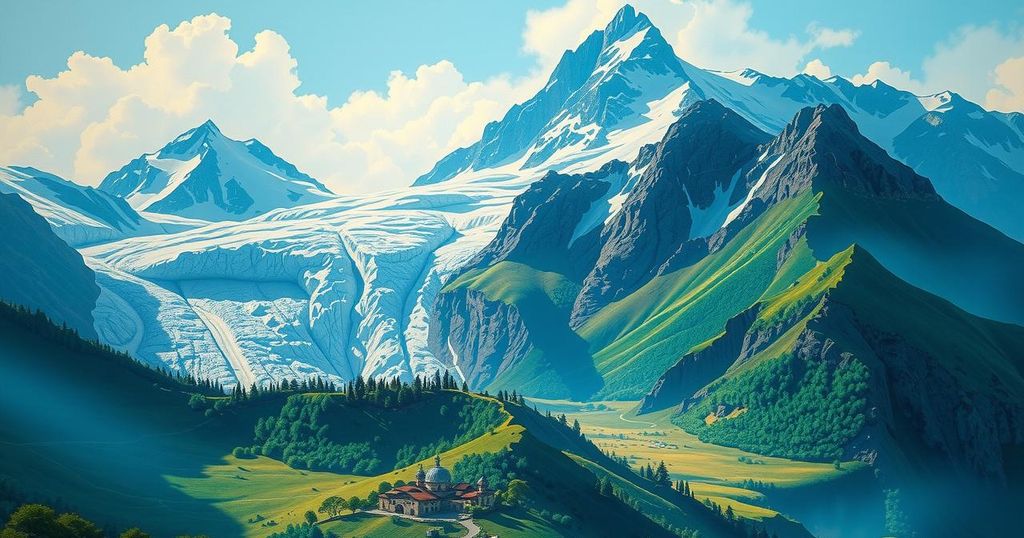The Rwenzori Mountains, home to Africa’s last glaciers, face significant melting that threatens local villages reliant on their water supply. Increased flooding, combined with environmental degradation from human activities, poses severe threats to communities. Scientific efforts are underway to monitor changes, while indigenous practices are being revived to promote sustainable land management and adaptation to climate impacts.
The Rwenzori Mountains in Uganda, home to Africa’s last glaciers, are experiencing alarming ice melt that threatens local communities dependent on their water supply. A team of scientists is working to monitor hydrological changes and assist vulnerable populations in adapting to new flooding patterns. Recent climate patterns have shown an increase in extreme weather events, including frequent floods that have devastated infrastructure and homes in the region.
The glaciers are melting at an unprecedented rate, with predictions indicating their possible disappearance by 2030. Long ago, the impressive ice cover measured about 7.5 square kilometers; however, today only a mere one square kilometer remains. The water from these mountains is essential for millions, supporting agriculture, livestock, and fisheries, and is a critical source for the Nile River.
Dr. Hilde Eggermont emphasizes the broader implications of glacier melt, stating it disrupts vital hydrological cycles and increases the risk of extreme weather. Local land usage, such as deforestation and intensive farming, has further exacerbated community vulnerabilities to natural disasters like floods and landslides. Increasing incidences of these disasters have caused significant financial losses for local farmers, significantly affecting their livelihoods.
The Rwenzori Mountains hold immense cultural importance for the Bakonzo and Batoro ethnic groups, representing home and spirituality. The local community’s traditional practices, which foster environmental stewardship, are increasingly being recognized as vital for mitigating environmental degradation. Civil society organizations are working to revive these cultural values through agroforestry initiatives that promote sustainable land management, helping families adapt to changing climates.
As the glaciers continue to recede, the unique ecosystems that rely on them are experiencing severe degradation. The integration of indigenous knowledge and practices is deemed essential for a sustainable future. Ensuring that traditional environmental practices are revitalized may offer the best chance for both ecological and cultural preservation in the region.
The melting of the Rwenzori glaciers presents a dire challenge for local communities in Uganda, impacting both the environment and cultural heritage. Scientific interventions and community engagement are crucial in addressing increasing flood risks. Moreover, reviving traditional practices may provide sustainable solutions for fostering resilience in the face of climate change and ensuring the preservation of ecological systems and cultural identity.
Original Source: www.telegraph.co.uk






